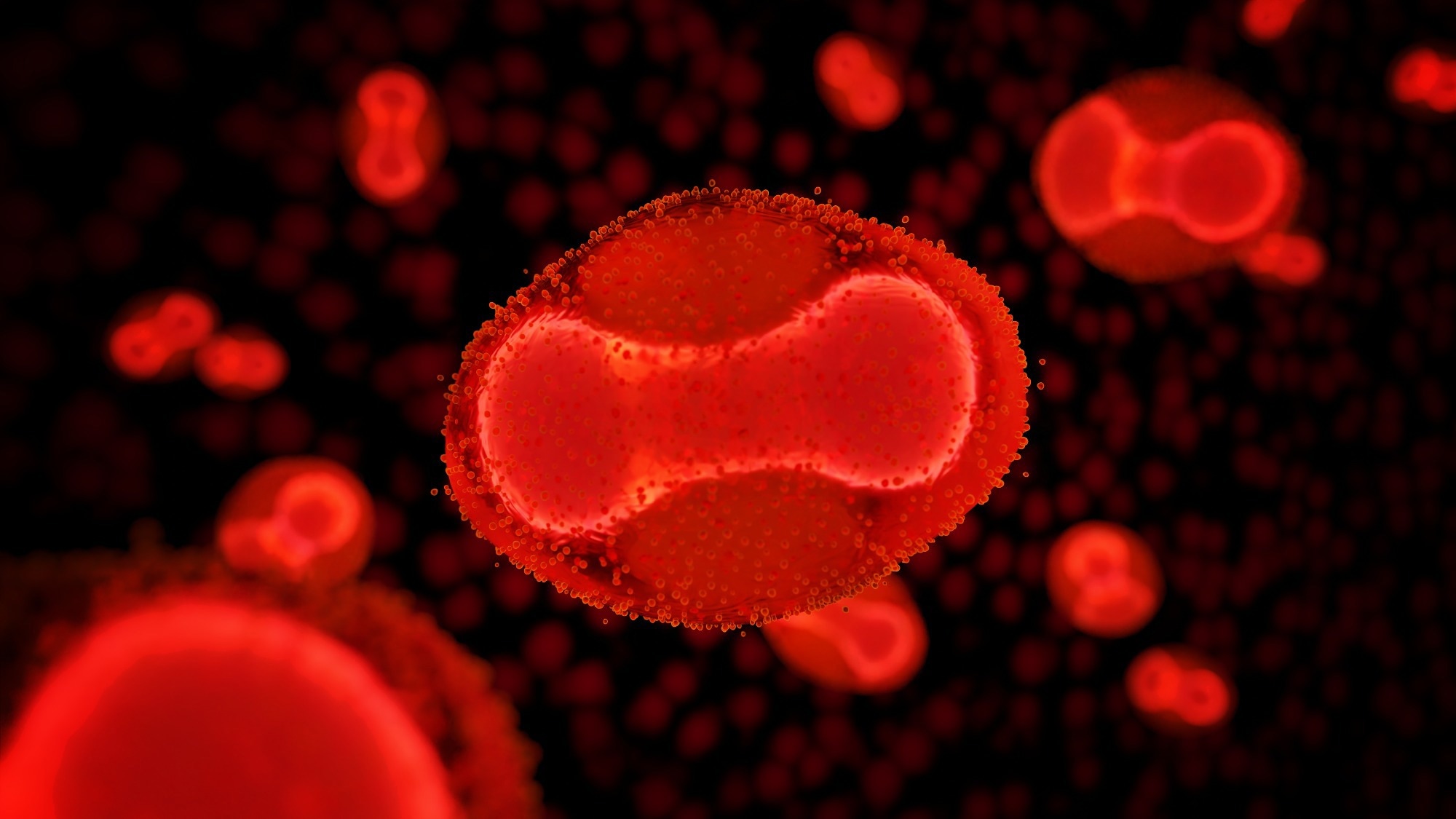Bavarian Nordic’s JYNNEOS (Modified Vaccinia Ankara) vaccine was used in the state- and nation-wide vaccination campaigns during the 2022 Mpox outbreak, which primarily affected gays, bisexuals, and males who had sex with males (MSM). As a result, health authorities prioritized postexposure prophylaxis (PEP) and vaccinating high-risk individuals (mainly MSM). However, data on JYNNEOS VE from controlled trials are limited.
 Study: Effectiveness of JYNNEOS Vaccine Against Diagnosed Mpox Infection — New York, 2022. Image Credit: Dotted Yeti / Shutterstock
Study: Effectiveness of JYNNEOS Vaccine Against Diagnosed Mpox Infection — New York, 2022. Image Credit: Dotted Yeti / Shutterstock
About the report
In the present report, researchers presented JYNNEOS VE in preventing Mpox infections among NY residents during 2022.
The team compared JYNNEOS vaccination results among adult males with laboratory-verified Mpox (case-patients) diagnosed between 24 July and 31 October 2022, in New York, to those among control individuals diagnosed with primary syphilis or rectal gonorrhea and prior history of sexual intercourse with males without Mpox infection.
Surveillance data were systematically obtained for the analysis. The team matched cases and controls to the vaccination system records of the state. Logistic regression modeling was performed to calculate the odds ratios (OR), which were used along with the number of JYNNEOS vaccination doses received to estimate VE. The data were adjusted for age, ethnicity, race, a residential region within New York but outside of New York City, and the Mpox diagnosis week.
The status of JYNNEOS vaccination was classified into the following groups: an unvaccinated group (zero JYNNEOS vaccine doses received); vaccinated for Mpox or sexually transmitted infections (STIs) with specimens obtained within two weeks of initial vaccine administration; vaccinated with STI specimens obtained after two or more weeks of the initial vaccination; and vaccinated with STI specimens obtained following the subsequent vaccination.
Reports were assessed by population health staff members and entered into the Communicable Disease Electronic Surveillance System (CDESS). One-dose, two-dose, and combined estimates of JYNNEOS vaccine effectiveness were obtained.
Results
Between 2 June and 31 December 2022, the NYSDOH recorded 375 Mpox cases, and the NYSIIS recorded 27,385.0 vaccine doses administered, of which 61% (n=16,769) and 39% (n=10,616) were the first and second doses, respectively. The case counts were highest in the middle of August, five weeks following the JYNNEOS immunization campaign launch.
Between 24 July and 31 October, 252 cases and 255 controls (80 and 175 with primary-type syphilis and rectal gonorrhea, respectively) satisfied the eligibility criteria and had similar ages. Hispanics were more common among cases than controls (44% versus 19%, respectively), and more cases (69%) than controls (36%) resided in urban areas outside New York City.
The majority (91%) of participants (n=220) were unvaccinated, and 9.0% of cases (n=22) were JYNNEOS vaccinees, among whom 10 individuals (4.0%), 10 individuals (4.0%), and two individuals (1.0%) had received one dose <2.0 weeks prior, one dose ≥2.0 weeks prior, and two doses, respectively. Among controls, 51 (20%) were JYNNEOS vaccinees, including 42 individuals (17%) who were diagnosed with an STI ≥2.0 weeks after receiving the initial dose (9.0%, 23 individuals) or both doses (7.5%, 19 individuals).
The adjusted one-dose, two-dose, and combined JYNNEOS VE estimates were 68%, 89%, and 76%, respectively. JYNEEOS VE observed in less than two weeks of receiving the initial dose was non-significant, probably due to the inclusion of PEP recipients and individuals with Mpox exposure after vaccination but before developing protective immunity.
Multiple sensitivity analyses were performed to assess the robustness of the study findings. The initial analyses, excluding males aged ≥50.0 years who may have been administered smallpox vaccines before the termination of regular non-military US vaccinations in 1972, yielded similar results. The second analysis comprised 71.0 control individuals diagnosed with secondary syphilis and yielded a single-dose or double-dose VE of 65.0%.
Among controls, 84% (n=213) underwent testing due to the presence of symptoms (41%, 88 individuals), partner referrals (9.0%, 19 individuals), screening purposes (48%, 103 individuals), or other reasons (1.40%, three individuals). The third sensitivity analysis, including only control individuals undergoing testing due to referrals or symptoms, yielded a one-dose or two-dose VE estimate of 64.0%.
The fourth sensitivity analysis included the findings of only individuals with known ethnicity and race estimates, yielded single-dose or double-dose VE estimates of 81.0%. The lower estimated VE obtained by analyzing secondary syphilis patients may reflect control individuals with different clinical presentations or more remote risk behaviors. Lower VE obtained by limiting the control group to individuals undergoing testing due to symptoms or referrals may reflect the intended elimination of low-risk individuals seeking care or the inadvertent elimination of high-risk individuals accessing Mpox screening frequently.
Based on the findings, the adjusted combined one-dose (administered ≥2.0 weeks prior) or two-dose JYNNEOS vaccine effectiveness was 76%. The findings underpin the advocacy of two-dose JYNNEOS vaccination regimens to prevent Mpox, following CDC and NY State Department of Health (NYSDOH) recommendations. The vaccine may be incorporated into broader sexual health programs.